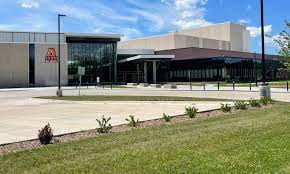Internet slang, or “netspeak”, has become an integral part of online communication, but its widespread usage has raised concerns about its impact on everyday language. While internet slang is convenient and can facilitate quick and informal interactions, it has also been associated with negative effects on written and spoken language. This editorial examines the detrimental impact of internet slang on language proficiency, communication clarity, and social interaction.
The pervasive use of Internet slang has been linked to a decline in language proficiency among individuals, particularly in the context of formal writing and professional communication. The abbreviated and non-standardized nature of internet slang can adversely affect an individual’s ability to articulate their thoughts coherently and meet grammatical standards. This erosion of language proficiency may negatively affect individuals’ academic and professional success and their capacity to engage effectively in written communication.
Furthermore, the prevalence of internet slang poses a significant challenge to communicate clarity. The use of acronyms, emoticons, and abbreviated phrases in online discourse can lead to misinterpretations and misunderstandings, especially in the absence of nonverbal cues and tone indicators. As a result, the reliance on internet slang may negatively impact the development of effective communication skills, both online and offline.
In addition to it’s impact on language proficiency and communication clarity, internet slang has implications for social interactions. The casual shorthand nature of “netspeak” can blur the boundaries between formal and informal discourse, potentially leading to a decline in politeness, respect, and struggles with interpersonal communication. The shift in social dynamics may contribute to a diminishing sense of civility and mutual understanding, fostering an environment of linguistic informality that may not align with the expectations of respectful and professional interaction.
Moreover, the use of internet slang has the potential to cause misunderstanding within diverse communities. The normalization of certain slang terms and expressions may reinforce linguistic biases and contribute marginalization of individuals who do not conform to the prevailing norms of online communication. This perpetuation of linguistic inequality has broader implications for social inclusion, diversity, and the recognition of linguistic variety within society.
In conclusion, while internet slang has undoubtedly transformed the use of digital communication, its widespread adoption has given rise to various negative effects on everyday language. The downfall of language proficiency, social interactions, and communication clarity calls for a critical examination of the role of internet slang in shaping contemporary linguistic practices =. As we navigate the complex interplay between digital communication and language norms, it is essential to consider the far-reaching consequences of internet slang and strive to preserve the richness and adaptability of language in the digital age.
What is high school like in 2023?
n one word, my highschool could be described as divided. Being surrounded by people in the same age group your entire life and seeing the end of your experience in reach. It can make you reminisce about the time in your youth, where everybody loved everyone and you were united. A class, a friend group, surrounded by people who support you, but as you get older the protectant circle shrinks and it can be hard to see yourself in the light they saw you.
We got a brand new building in 2022, I believe it to be remodeled after an airport. Every group of classes is clustered together, in different buildings under the same fluorescent lighting. If you don’t have your friends in your classes the sad truth is you may not see them during the school day. The community you have built for yourself is gone, disintegrated under the new concrete slabs. Leaving you isolated and forced to reach out to create a new support circle, however, it is more difficult than you would think. Reconnecting with your roots after years of being separated can put even more weight on your shoulders than the full schedule of classes you are taking.
I think the pandemic played a large part in the separation of grades and groups. Pre-Covid people were a lot more social, but during people tended to stick with the people they knew better than the random people they passed in the hallways. Socializing became a fragile concept for most nations.
In my opinion, I believe COVID has left its mark on everyone’s lives. Whether that be within their families, mental health, or an internalized fear of enduring the unknown once again. During the highly contagious spread of a virus, we were told to distance ourselves from people. We continue to do that today, not just physically but emotionally as well.
I am a Senior this year. My high school experience thus far has been mediocre. There have been lots of ups and downs throughout these last four years. The education has not been as stimulating, and I feel as if I’m not learning anything new. The community has split within our district, or perhaps even just my grade. I think that Covid did take a lot away from my four years at Ames High but also gave me a more unique experience than most could say they had.
High School in 2024: Adolescents unattached mentally and emotionally in all aspects of school.


Compare and contrast the images above, if there was no school logo, would you be able to tell the difference between the high school and airport?
Welcome To Evelyn N’s blog!
ESKETIT
